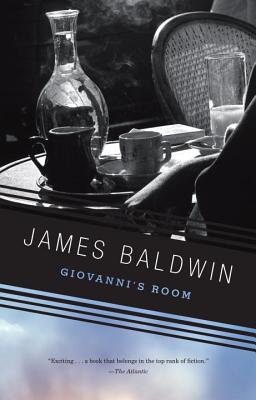APS TOGETHER
Day 5
Finish Ch. 3 (end of Part 1), p. 61-71 (from "Our oysters came and we began to eat" to "so many desperate and drunken mornings.")
September 21, 2020 by Carl Phillips
It’s a curious moment, when David decides that the people he’s surrounded by – the patrons of the restaurant, Giovanni, Parisians in general – are “people I would never understand.” And his impulse is to go “home,” as if that could prevent him from succumbing to “shameful” behavior. Yet he knows that his situation is nothing new for him. It’s a kind of spiritual lost-ness, akin to Augustine (in the Confessions) finding himself in “the region of unlikeness,” where he recognizes simultaneously what he believes he should do and his equal desire/inability to do it. It’s one of the few moments where, almost, I feel sorry for David.
Speaking of Augustine, in Confessions he famously prays to be made chaste, then adds “but not yet.” Compare this to what happens to David upon entering Giovanni’s room: “With everything in me screaming No! yet the sum of me sighed Yes.” Is Giovanni’s room the region of unlikeness? At least David admits that no one is forcing him into this situation. He’s the one who (“the sum of me”) wants this.
Joey’s room in Brooklyn. Giovanni’s room. Guillame’s bar. Madame Clothilde’s restaurant. The house in the south of France from which David remembers everything that occurred in Paris. So many interior spaces in a book of such interiority. The outside world – parks, open spaces – hardly appears. Les Halle is an outside market but crammed with people…The interior spaces are always crowded, too many people or the space itself is too small. Likewise, the psychological and emotional interiors of several of the characters – but especially David – are overfull, no room to move about, without bumping up against yet another stranger aka another troubling aspect of the self.
The conversation between David and the caretaker of the place he’s renting in the south of France in many ways explains how difficult it can be, even now, to come out as queer. The caretaker offers the usual solutions for unhappiness/confusion: marriage, children, and prayer. But at the time of the novel, marriage and children aren’t options for queer men in particular, and how to turn to a religion that historically has condemned who you are, how you behave, as sinful? So much of David’s difficulty might be avoided if he could just be who he is. But society forbids it. We’re back to the impossible crossroads of Greek tragedy again.
